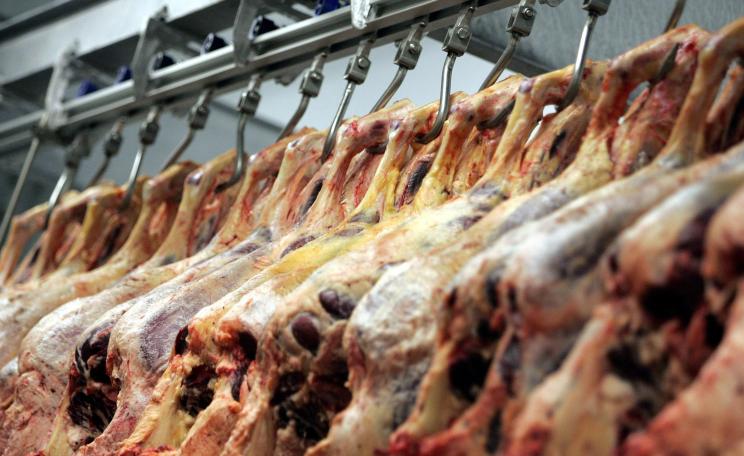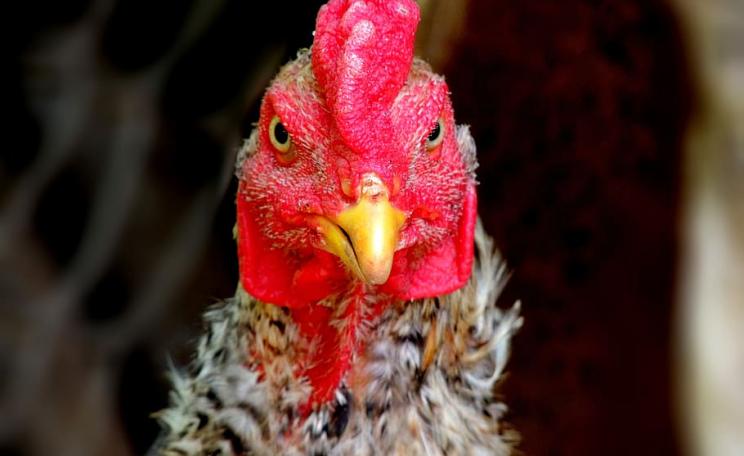-
The Formula 1 racing world witnessed some ugly infighting recently, but this time it wasn't over pit stops, early breaking or contracts. It was a food fight.
First-place champ Lewis Hamilton was the recipient of a stream of verbal attacks taking aim at his vegan and environmental advocacy.
Hamilton's former teammate Fernando Alonso implied that Hamilton is a hypocrite because, like most F1 drivers, he must fly to races around the world. He also suggested that Hamilton should just keep his mouth shut about his vegan beliefs.
Positive influence
He got flak from announcer Will Buxton, too, as well as from fellow driver Romain Grosjean. So why is there so much hate for a man who is trying to do good?
Hamilton is making an effort to do something positive for animals and the Earth – and he's succeeding. Like every vegan, he's saving nearly 200 animals a year from a painful, terrifying death. He's also reducing the amount of greenhouse gases his diet contributes to climate change by up to 60 percent.
By using his spotlight to promote vegan eating, Hamilton is influencing legions of fans to consider leaving animals off their plates – a ripple effect that can have a massive impact.
In addition to being vegan, Hamilton is working toward being carbon neutral by the end of the year. He sold his private jet and now flies commercially (when he must fly), and he's pushing Mercedes-Benz to replace its leather interiors with vegan leather or vegan suede. It's a start...
Hamilton has remarked that it breaks his heart that more people don't immediately see the suffering of animals who are used for meat, milk and eggs and do something to help stop it. That is a wonderful reaction - one that should be praised, not mocked. Or is the goal to discourage him from doing anything at all to help?
Deep-seated defensiveness
No one is the Buddha. Instead of tearing down people who are doing their best to make a difference, we should support and applaud them.
So what prompted these hateful anti-vegan tirades against Hamilton? Was it jealousy or competition spiralling out of control? I suspect it's something even deeper than that.
There is a great cartoon that gets at the heart of this issue. It depicts a clearly upset little fellow – eyes bulging and hands waving in the air – ranting at another character, who is wearing an "I <3 cows" shirt. "Everything was fine until you pointed out I ruined it!" the angry one fumes. The cartoon goes on to explain: "You may think you are fine eating meat – but if vegans make you angry, then you are not fine with it at all."
Underlying many anti-vegan outbursts is a deep-seated defensiveness. And Hamilton isn't the only one to be subjected to such bullying.
When freelance journalist Selene Nelson suggested a series of articles on the rise of vegan eating last year, it prompted an infamous tirade from food critic William Sitwell, who suggested: "How about a series on killing vegans, one by one."
Treat lightly
People who attack others for making kind choices are likely trying to quiet their own guilty conscience.
As writer George Reynolds recently opined: "We are conditioned to like animals and decry animal cruelty, and yet we are also brought up in a culture that revels in the bacon sandwich, the Sunday roast, fish and chips.
"One simple explanation for why people don't like vegans is because they show how confused humankind is about food choices and how illogical its decision-making can be."
People love to smirk, "But … bacon!" But no one feels good about the way animals are abused and killed for meat – their tails and testicles are cut off without painkillers, they're crammed en masse into filthy sheds, and they're dunked into scalding-hot water for feather or hair removal at the abattoir.
No one is proud that their food choices contribute to the crisis our Earth is facing, from the Amazon going up in smoke to rivers and lakes polluted with factory farm runoff to climate change, which threatens the very future of life on this planet.
Perhaps, instead of getting defensive, those who are not yet vegan should take a hard look at the consequences of their choices and make a change.
The good news is that it's never been easier to take a step towards going vegan. And while no one is perfect and there is much work to be done, striving to tread lightly on the planet is something to commend, not condemn.
This Author
Ingrid Newkirk is the president and founder of People for the Ethical Treatment of Animals (PETA), the world’s largest animal rights organisation.
Image: jen_ross83, Flickr.





